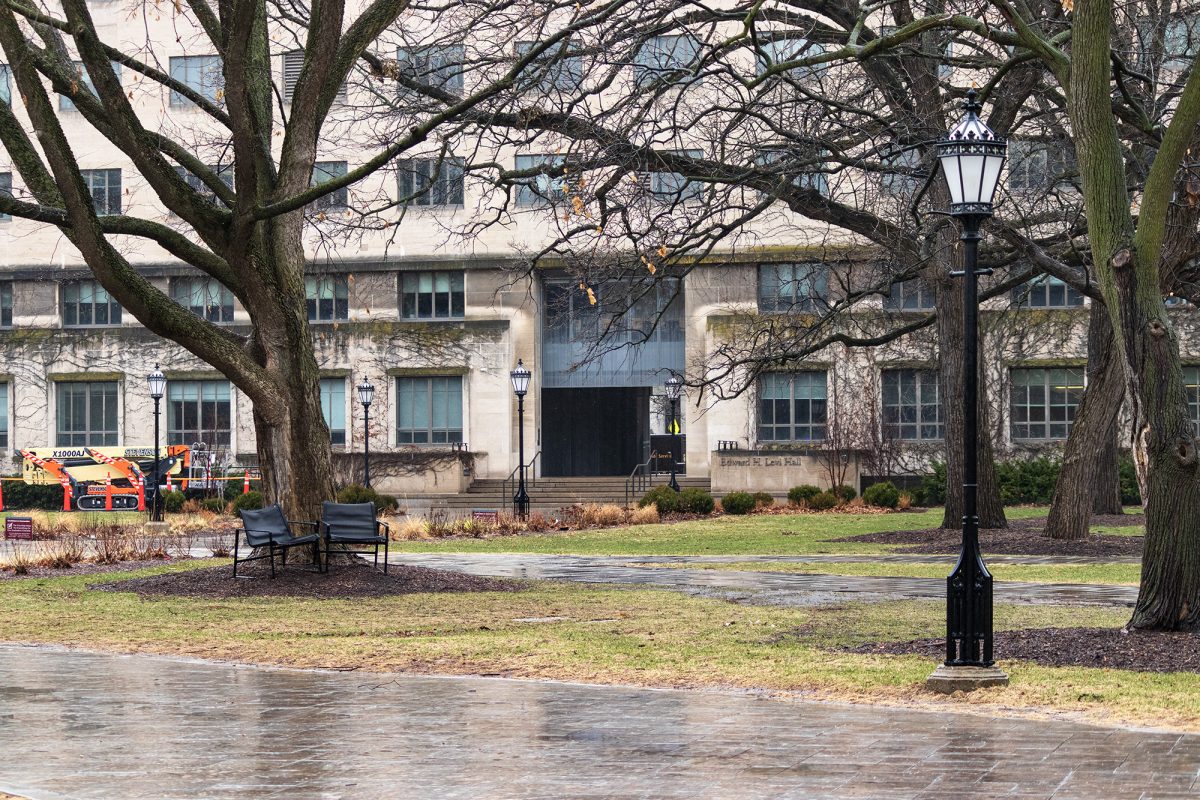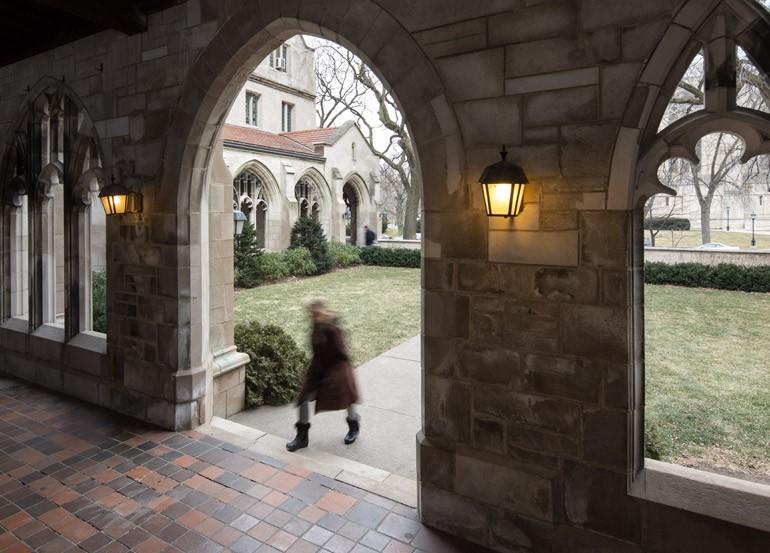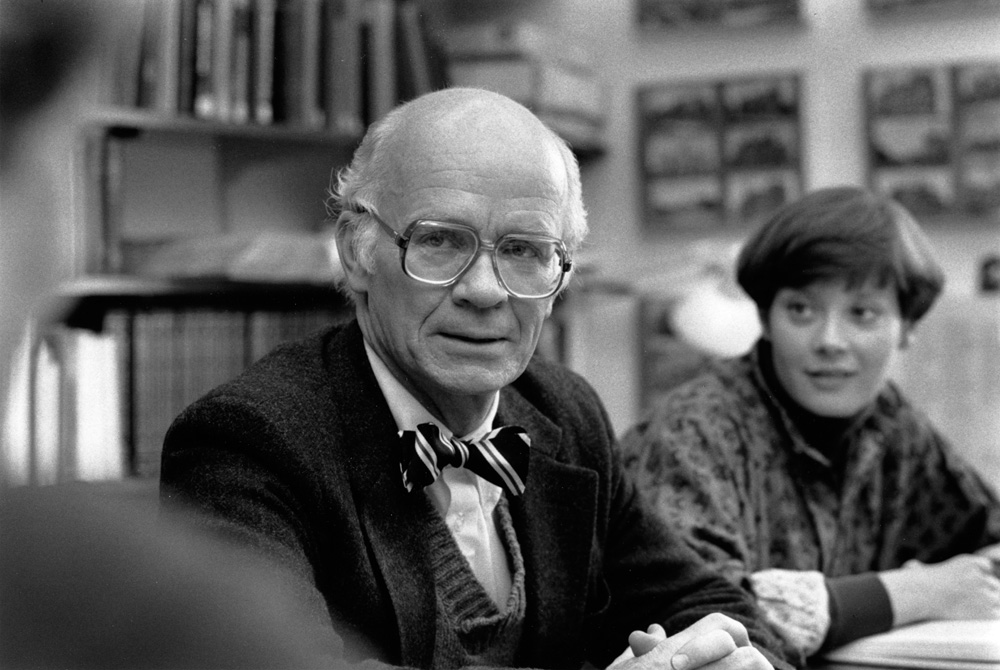If one course best characterized the University of Chicago, many claim, that course would be History of Western Civilization. And if one professor epitomized this course, that professor would be Karl Joachim “Jock” Weintraub. The legendary professor, 79, passed away Thursday, March 25, of a brain tumor.
All of Weintraub’s former students who were interviewed by the Maroon emphasized his teaching intensity, recalling the way he paced the classroom and called on students by their last names as they sat perched in tension, aware of his high expectations.
“He would say theatrically, with his thick German accent, ‘Ms. Plocharczyk!’ or ‘Mr. Bernstein!’ I never knew my classmates’ first names,” remembered Beth Plocharczyk, A.B. ’02. She took his course in her second year.
“He always expected you to be prepared, and if you didn’t have an answer or you were fumbling, he would stop you in your tracks and call on someone else. He didn’t deal with bullshit and had such a commanding personality that you could never forget,” Plocharczyk said. She added that it was his rigorous Socratic style that made him so effective as an educator. Though he was imposing, she said, he had a warm, gentle aura.
Bertram Cohler, the William Rainey Harper Professor in the Social Sciences Collegiate Division, is a colleague and former student of Weintraub. He agreed with Plocharczyk, saying that although Jock had a serious, imposing presence, he strongly cared about each of his students.
“He would stop you in the hallway and ask you how your particular project was going—he always remembered what you were doing and always listened to what was happening in our lives,” Cohler said.
Cohler still refers to the notes he took in Jock’s class in 1958. He recounted his first day sitting in the class, when he was a second-year in the College. “Students were just terrified—we sat there completely mum as he walked in,” Cohler said. “Up until then, my core courses had not been like that. Here comes this German man, so formidable, in a three-piece suit. I was in awe—I am still in awe.”
Weintraub’s almost-epic life story plays an important role in his legendary status at the University. Born in Germany to a Jewish father and Christian mother, his family found sanctuary in the home of a Christian family in Holland duing World War II. After the war, his family immigrated to the United States with the aid of Quakers.
Studying history at the University, Weintraub graduated from the College in 1949, received a Masters degree in 1952, and a Ph.D. in 1957.
Amy Kass, a senior lecturer in the Humanties and a student, friend, and colleague of Weintraub’s, also remembered his habit of pacing. She said professor positioned himself behind students while asking them pointed questions. He had “the very look of authority—when he spoke, everyone listened,” she said.
Kass said it did not take long before students’ fear of Weintraub turned to respect and admiration. “Few of us had ever encountered a man who took us so seriously, or who made us, in turn, take ourselves seriously. In his presence, we tried harder,” she said.
Kass will always remember one remark he made when discussing what enables students to succeed in the Fundamentals program. “His formula was this: ‘Fuzzy questions, fuzzy answers.’ Simple and true, the clarity of his questions were probably responsible for the hard work and thought that went into answering them,” she said.
“To me and many others, he embodied the best of the University of Chicago. As long as he was still walking the halls of Cobb, one knew that something very important and unique was still going on at the University,” Kass said.
Katy O’Brien Weintraub, before becoming his wife in 1983 and his colleague in 1987, took Weintraub’s course in her third-year at the College. She said she put off taking her civilization requirement for a year just so she could take his section.
Back when she was a student in the 1970s, students had to wait in line to meet with their advisors to choose classes. Katy was one of the first in line that Monday morning at 6 a.m.—just so she could make sure she had a spot in his course.
“Jock had such a respect for people, both the living and the dead—for the authors we read in class and the students—and that came through to every student he had over the years,” Ms. Weintraub said.
She said with a chuckle that Weintraub would often tell stories in class, and when students stared at him in disbelief, he would say, wide-eyed, “I’m not making this up, you know.” He took the line from Anna Russell, a musical comedian famous for her routines spoofing classical music, and “one of Jock’s favorites. His former students who read this should get a kick out of that—they’ll remember,” she added.
Ms. Weintraub said she thinks her husband’s legacy can be found in the number of students he inspired to teach and to follow in his footsteps.
Karl Weintraub taught at the University for a total of 56 years. He continued teaching up until last year, despite his poor health.
Arrangements for the memorial service are currently in the works. He is survived by his wife, Katy O’Brien Weintraub, and his sister, Tatjana Wood.








